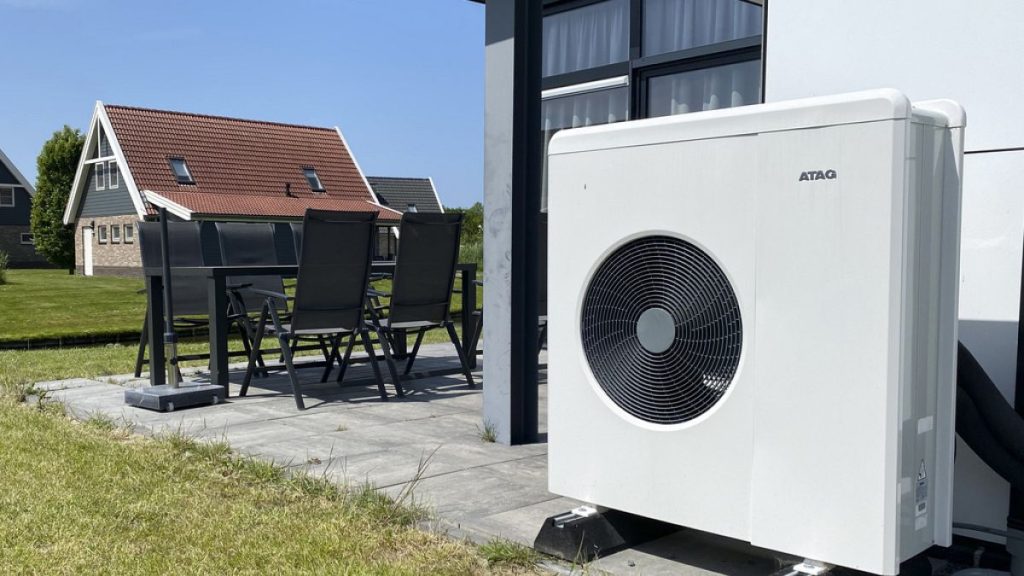Heat pumps are facing a decline in demand in Europe following record sales during the 2022 energy crisis. Manufacturers are looking to Brussels to address what they see as taxes and subsidies that favor gas over electricity. Reports suggest that governments and the EU are not doing enough to promote the replacement of fossil fuel-fired heating systems with heat pumps, with support schemes of varying quality and artificially low gas prices compared to electricity. Sales of heat pumps fell by 47% in the first half of the year, with only Scandinavia bucking the trend. The European Heat Pump Association (EHPA) found that heat pumps are cheaper overall than gas heating, even when the electricity price is around double that of gas.
Governments have been criticized for offering financial incentives to install modern gas boilers, which lock-in fossil fuel dependence for 15 years or more. The Reform Institute in Warsaw identified several issues with national support schemes, including failure to link subsidies to income, complexity and delays, and a lack of specialized loans to cover the high up-front cost of installing a heat pump. With buildings and heating accounting for a significant portion of the EU’s energy use and greenhouse gas emissions, the deployment of an estimated 60 million heat pumps across the bloc by 2030 is essential to achieve the targeted 55% reduction in net emissions compared to 1990. However, sales figures suggest that the EU may fall short of this goal, risking missed opportunities to reduce gas imports and cut CO2 emissions.
The EU is looking to coordinate national schemes to steer governments towards successful approaches in promoting heat pump adoption. The Commission can help members exchange good practices and harmonize their approach to heat pump support. The EU executive called for a doubling of the rate of heat pump deployment in the wake of Russia’s invasion of Ukraine but shelved the project after closing a public consultation in August 2023. The incoming Commissioner for energy and housing, Dan Jorgensen, is expected to face a hearing in the European Parliament on 5 November, providing insight into the EU’s future policies regarding heat pumps. EHPA’s director believes that heat pumps are essential for Europe to achieve energy sovereignty, competitiveness, and decarbonization of heating and cooling, and is hopeful that incoming Commissioners will appreciate this.
To address the decline in demand for heat pumps, the industry is urging EU governments to ensure that energy prices favor heat pumps over gas. Gas prices have fallen since the EU found alternative sources to Russia, making gas significantly cheaper than electricity across much of Europe. The EHPA director general has emphasized the importance of energy sovereignty, competitiveness, and sustainability in ensuring that energy prices incentivize the adoption of heat pumps. National support schemes have been criticized for favoring gas boilers over heat pumps despite their long-term environmental benefits. However, the Reform Institute has identified seven common issues in support policies, including the high price of electricity and a lack of specialized loans to cover installation costs.
The Reform Institute estimates that a shortfall in heat pump deployment could result in missed opportunities to reduce gas imports and cut CO2 emissions equivalent to Denmark’s annual emissions or those of three Ryanair-sized airlines. With buildings and heating playing a significant role in the EU’s energy use and greenhouse gas output, the deployment of heat pumps is crucial to achieving emission reduction targets. The Reform Institute and EHPA are calling for a coordinated effort at the EU level to support the deployment of heat pumps and address the challenges facing the industry. The upcoming EU Council meeting in Brussels and the hearing of the Commissioner for energy and housing will provide opportunities to address these issues and promote the uptake of heat pumps as an essential part of Europe’s energy transition.













